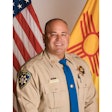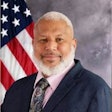The police profession now faces unprecedented challenging times in attracting and then keeping qualified and motivated talent. The officer shortage and possible solutions to the problem are common topics of discussion among law enforcement leaders.
Often, shiny new ideas such as how to best exploit social media for recruiting are among the first things mentioned in discussions of how to fill the ranks. Nearly always the power of increased salaries and additional monetary benefits and incentives also come up during the conversation. But what is generally missed is the incredible power of morale within an agency, both to attract, and then to keep the right officers, as they evolve and grow through their careers.
As the power and potential positive effect of morale is undisputedly vital, the next obvious question becomes: How do we increase it?
Often, chiefs and sheriffs with righteous motives will attempt to invigorate morale from their position with inspiring emails and platitudes that usually fall flat among their officers. A predictable “Keep up the good work! We’re all in this together!” email sent out to the troops during business hours is certainly a kind thing to do, but it has no effect on morale. True morale is always and only stoked at the squad level. That makes the position of sergeant or first-line supervisor the singular most important person determining the morale of a law enforcement agency.
For some sergeants, motivation and team-building comes naturally. We have all served under that one boss who just has “it”—that intangible, mystical quality that attracts hard workers, compels excellence, and draws the best out of his officers. Those sergeants are few and far between and should never be taken for granted. But for the overwhelming majority of sergeants who care deeply about their agency and their team, what can they do to invigorate morale?
First of all, heed George Washington’s famous advice on leadership: “Listen, learn, and help…then lead.” The surest way to begin to instill positivity and pride in a small unit or squad is for the boss to work as hard, and often harder, than the officers. Morale can be quickly and irreversibly assassinated by lazy sergeants who choose to simply critique, criticize, demean, and rely solely on their positional authority as the supervisor.
First-line leaders should be on the street, rubbing elbows with their officers as they strive to serve and protect, together. Sergeants should keep their hands dirty in the daily struggles of a shift alongside their officers, and never choose to quarterback from an office chair by way of cell phone. Young, impressionable officers will generally catch the fire, and take up the challenge of serving beside a sergeant who is a legitimate force multiplier as a real cop, as well as a good-hearted boss. Listen. Learn. Help. Then lead.
Second, make work fun. If that sounds naïve and simplistic, it may be because we have lost our creativity and vision. Police work is chock full of hilarity and few things bond teams like shared enjoyment. As F. Scott Fitzgerald once wrote, our profession grants us “riotous excursions with privileged glimpses into the human heart.” Calls for service when unorthodox and innovative measures are used to solve residents’ problems can often become comical. “Remember that call when we…” should be the soundtrack of every roll call.
Similarly, infusing good-natured competition into a small team is always enjoyable, and bonding. Range drills, foot races, or even speedy handcuffing competitions will unify a squad like few other things. Our job is often dark and morbid, but sergeants should never miss an opportunity to create and encourage fun. Morale grows alongside enjoyment.
Finally, sergeants should avoid micromanagement like a plague, all the while encouraging personal ownership and sovereignty of their officers. When an officer knows wholeheartedly that his decision-making and discretion is trusted by the sergeant, a powerful bond of trust gets cemented. Every time an officer calls her sergeant with a question, and instead of giving her a rote solution, he asks, “What is your recommendation?”, her confidence and appreciation increases. Morale is allergic to micromanagement, no matter the profession.
Next comes the question of what chiefs and sheriffs can do to reinvigorate morale. Without a doubt, agencies should invest heavily in the development of their sergeants and first-line leaders. Too often, agencies promote young officers into supervisory positions, task them with leading properly, and never equip them with tools to make that happen. Initiating ongoing leadership mentoring programs, recommended reading lists on effective leadership, and tracking the development of young leaders and catering programs to further their efficacy are all vital and worthwhile endeavors. Powerful leadership is most often a learned skill, and agencies should build up their first-line leaders, as they are the ones most vital in spurring morale.
The reputation of your agency is powerful, for good or for bad. When young recruits scan the horizon for which department they will choose to pursue as their career, they will be drawn to those with healthy morale. As the five- to 10-year veterans near the point in their careers when lateralling to other agencies is a viable option, robust morale can often keep them tethered. Finally, increased department-wide morale will help shore up an agency that most confidently and competently serves its residents.
Kory Flowers is a lieutenant with the Greensboro (NC) Police Department who has extensive investigative and undercover experience tracking criminal subversive groups, including anarchists, white supremacists, and sovereign citizens. Flowers trains law enforcement officers nationwide on various extremist groups and criminal factions, and leadership and communication, and has written numerous articles for POLICE.














